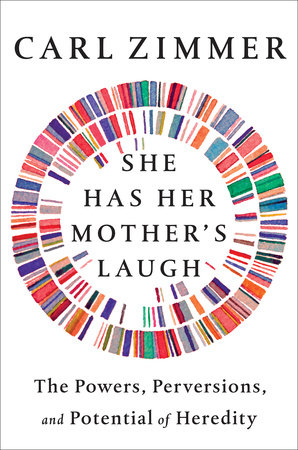This is an article from the NYT reporting the CDC recommendations for protection against tick-bearing diseases now that the hot weather is upon us. There are new tickborne diseases such as the Heartland virus and the number of cases of Lyme disease is growing. The CDC study did not attribute the increase in these and other diseases like dengue and Zika (in island territories) to climate change. To protect yourself wear long pants, long sleeves, pants tucked into socks, hat and bandana, use DEET on feet and insect repellent on exposed skin.

https://www.nytimes.com/2018/05/23/climate/rice-global-warming.html
This is a NYT article reporting the results of a study published in Science Advances by plant physiologists at the USDA that concluded that 18 varieties of rice grown in experimental rice fields which were exposed to the elevated levels of CO2 that are expected to occur later on this century contained fewer nutrients than rice that is grown today. The nutrients examined were protein, iron, zinc, Vitamin B1, B2, B5, and B9. For people in wealthier countries who consume a diverse diet this may not matter but for people who rely on rice as a primary food source, this is a significant decrease. Although this seems counterintuitive, higher levels of CO2 may cause plants to produce more carbohydrates, diluting other components.

https://www.nytimes.com/2018/05/25/opinion/sunday/meat-antibiotics-organic-farming.html This is a link to a NYT article about the use of antibiotics in the meat industry, in animal farms, and ultimately in our food. Antibiotics are added to animal feed not just to prevent microbial diseases but also to improve rates of growth. In 2017, the FDA enacted legislation to ban the use of human antibiotics for growth promotion due the the increase in the numbers of humans infected with antibiotic-resistant bacteria. According to the CDC, more than 400,000 people in the US become ill due to infection with food-borne antibiotic resistant bacteria every year. Recent studies of gut microbiota have determined that antibiotics were take as medication can disrupt our native microbiota and lead to the increase in chronic diseases and allergies. Antibiotic misuse in livestock and people may be destroying our ability to fight certain diseases and infections. Handwriting on the wall department.

A book the solipsistssoiree wants to heartily recommend is "She Has Her Mother's Laugh" by eminent science writer Carl Zimmer. Mr. Zimmer writes amusingly, personally and elegantly about the history, understandings and, more frequently, misunderstandings of heredity in a way that moves genetics out of the Punnet Square realm into the force it has become in modern society since the deciphering of the human genome.

https://www.nytimes.com/2018/05/26/opinion/sunday/insects-bugs-naturalists-scientists.html?login=email&auth=login-email This opinion piece in the NYT is by a professor of natural science about the reduction in biomass of flying insects. A recent study of 63 locations in Germany over the past four seasons concluded that there was 76% decline in the total biomass of insects. Why should we care? Insects are pesky critters. The author, a "lake scientist", who examines sediment cores from lake bottoms and has published about the loss of plankton communities, suggests that agricultural chemicals may be poisoning aquatic organisms such as plankton and insects that begin their lives as aquatic larva.

No comments:
Post a Comment